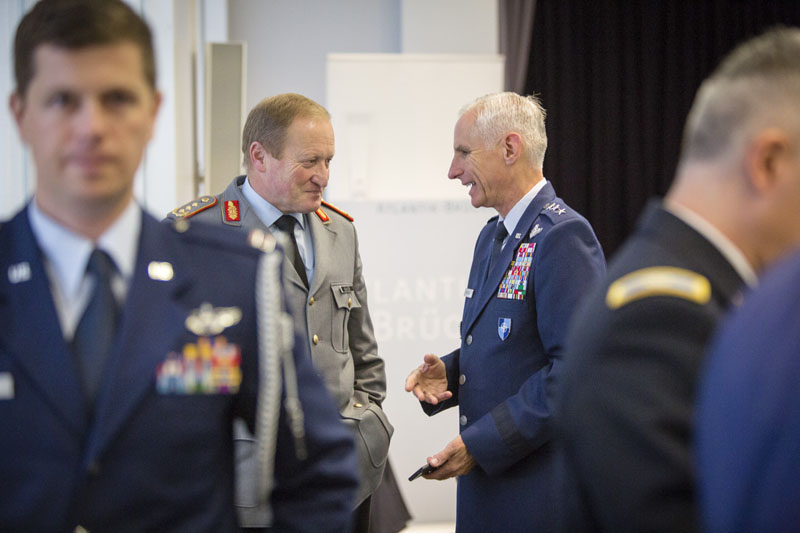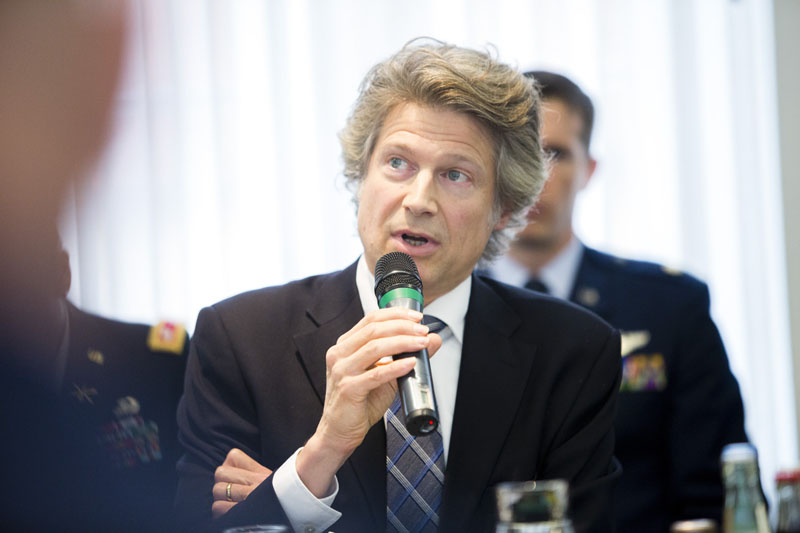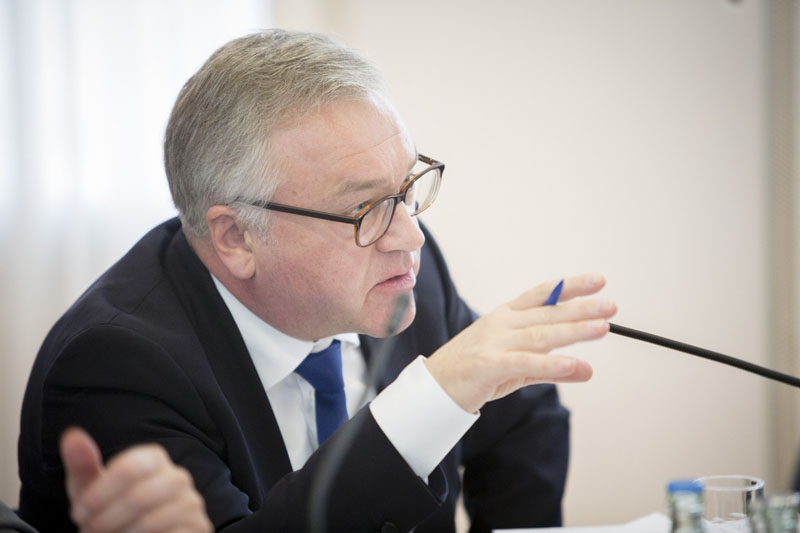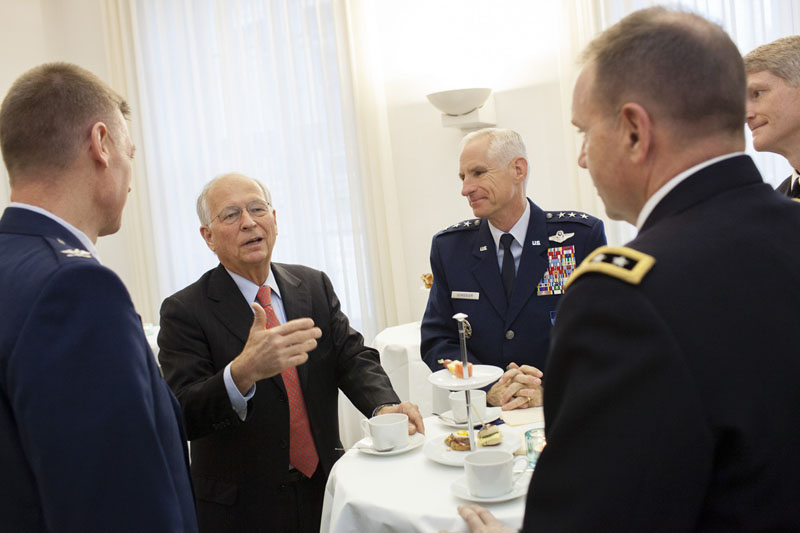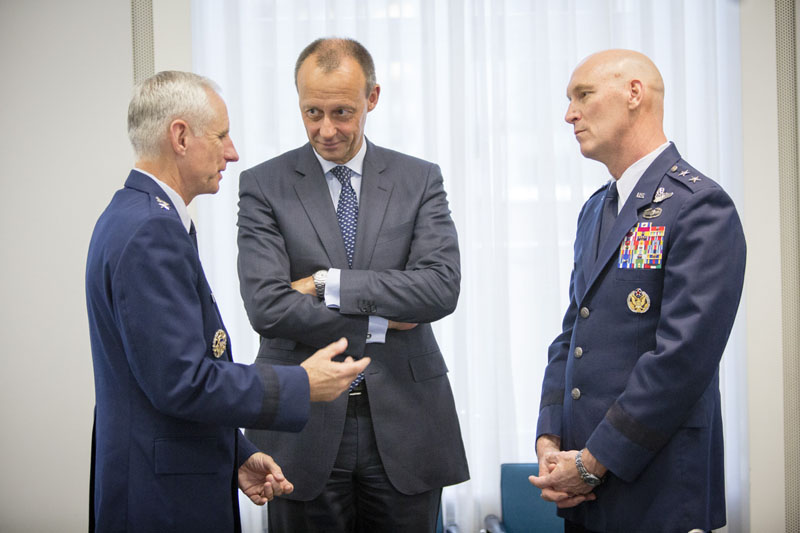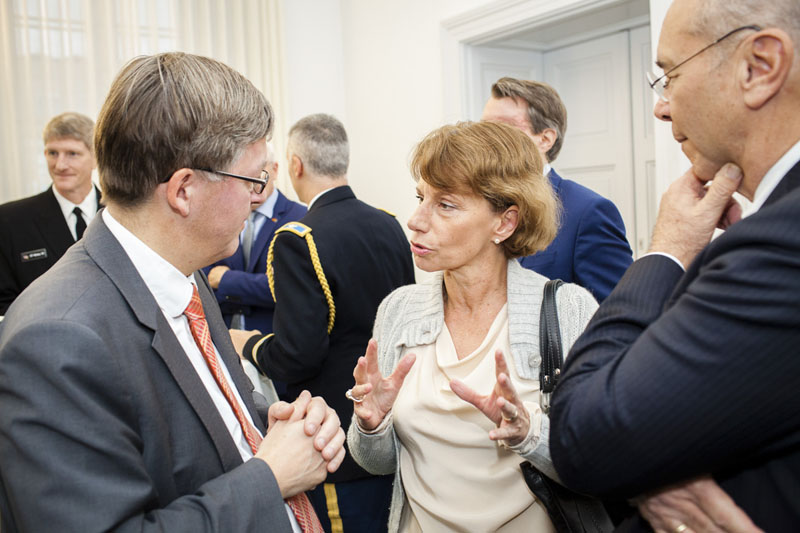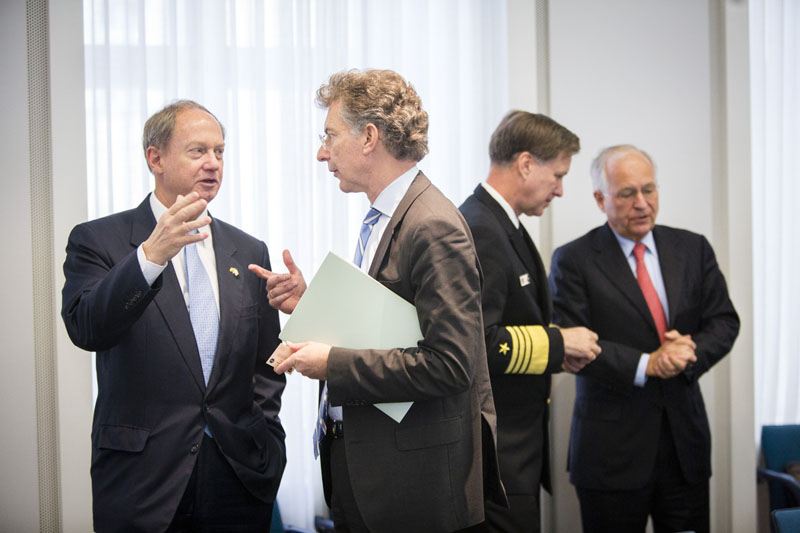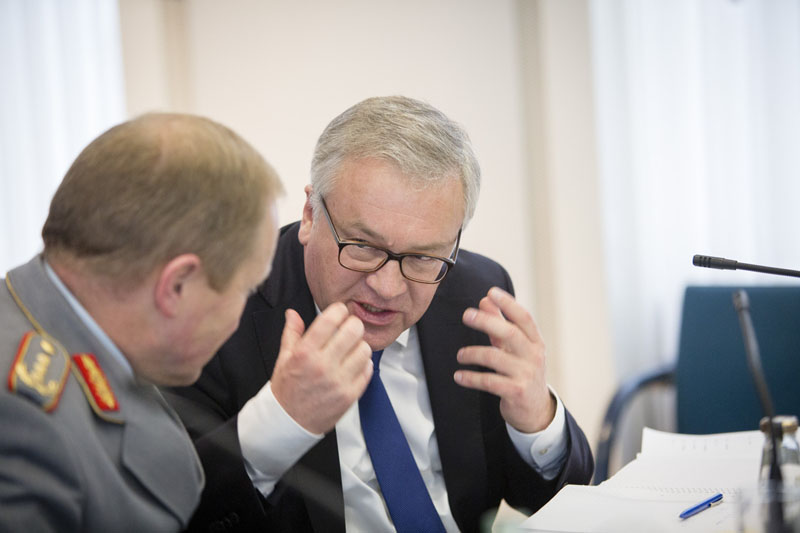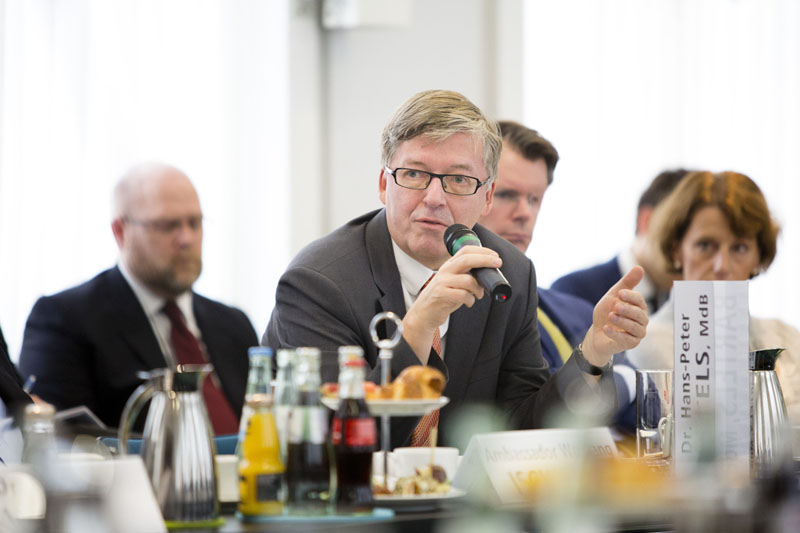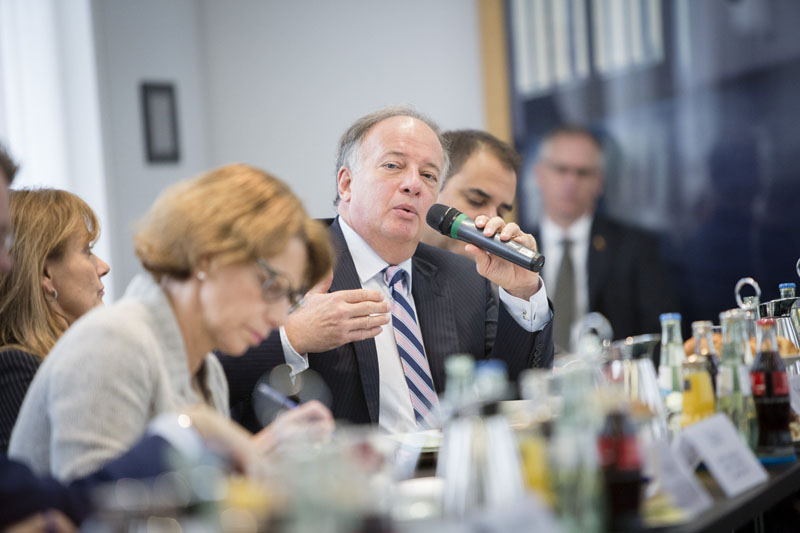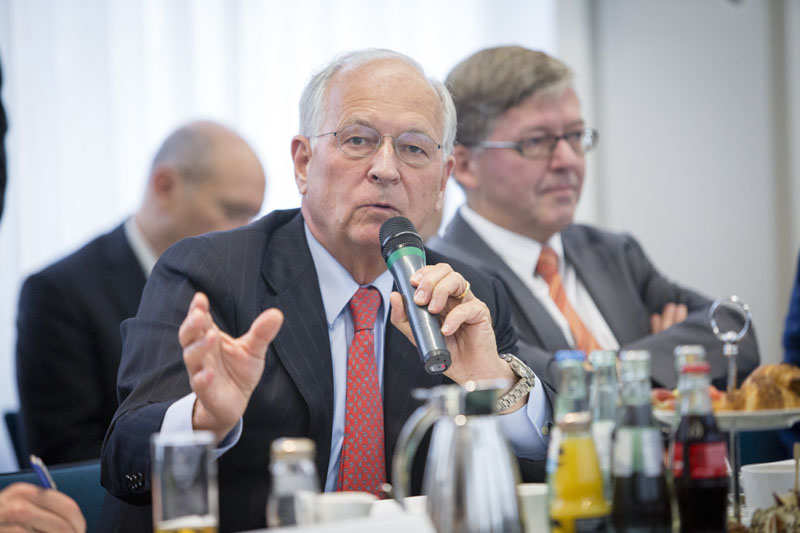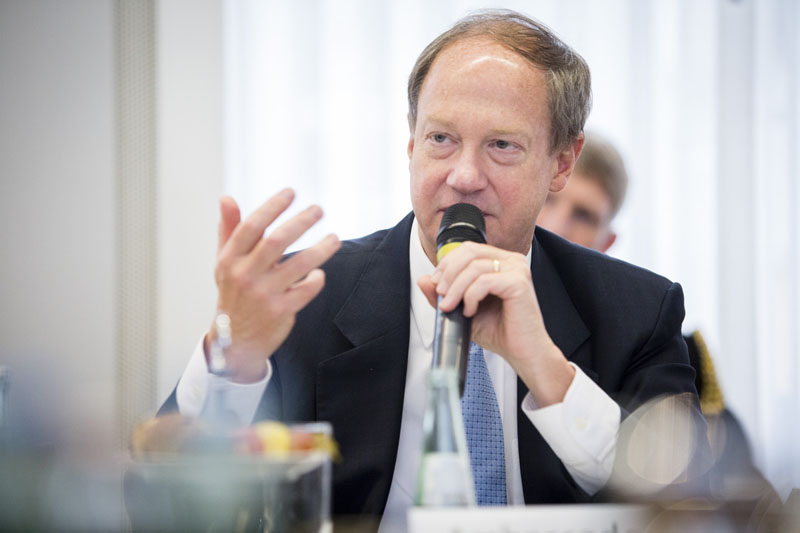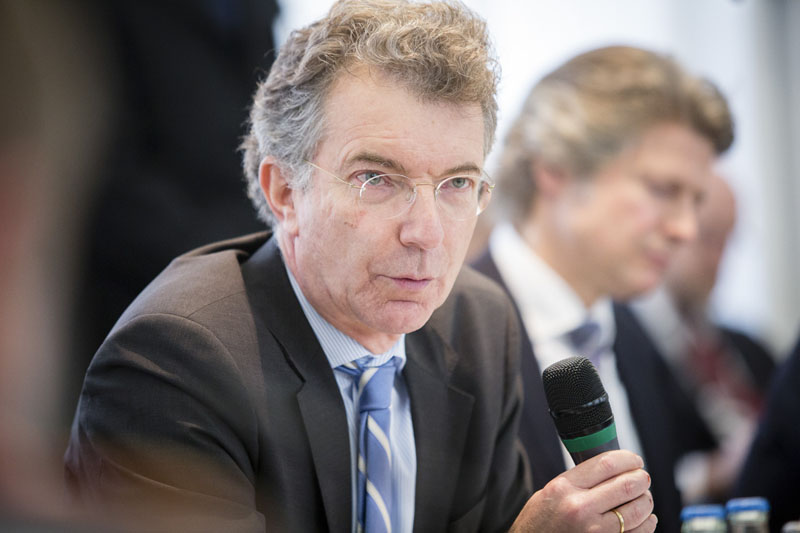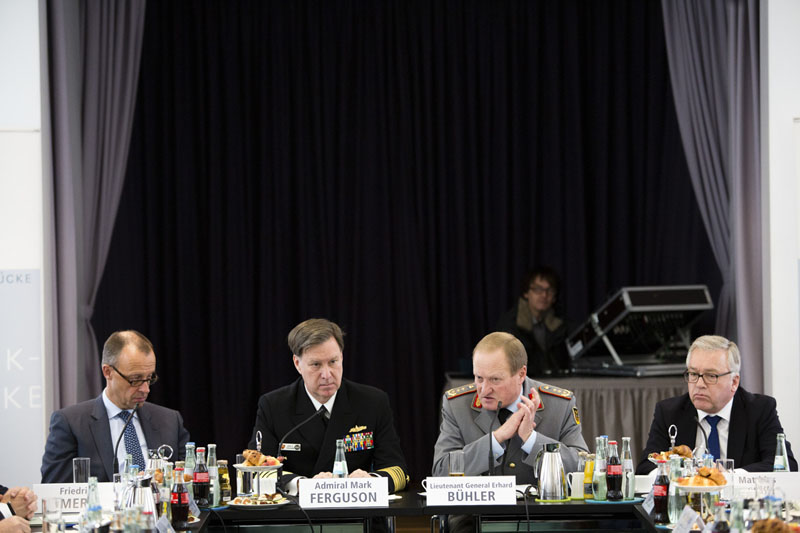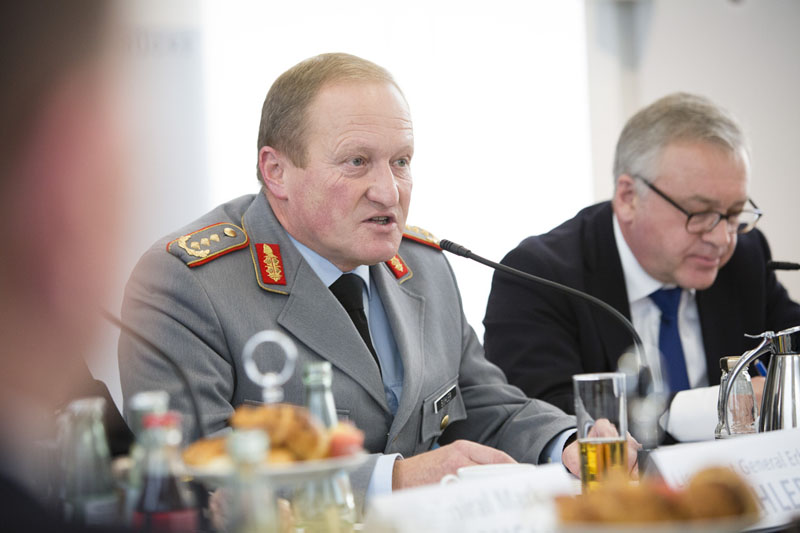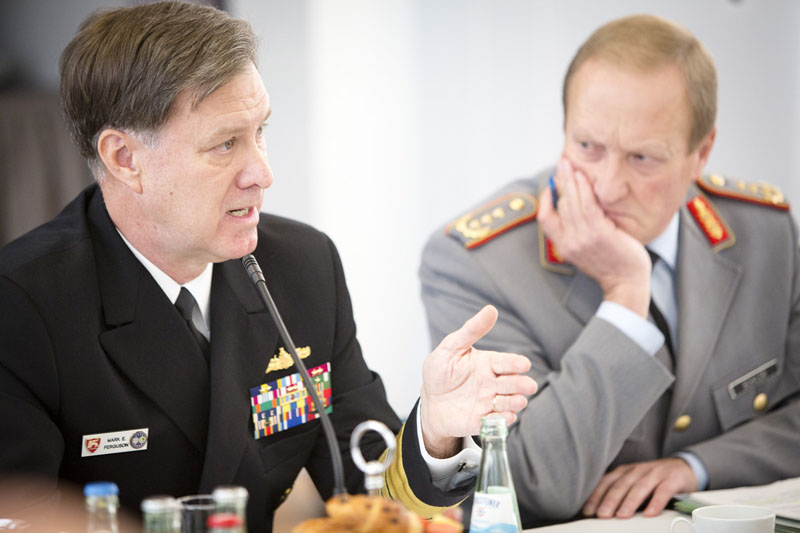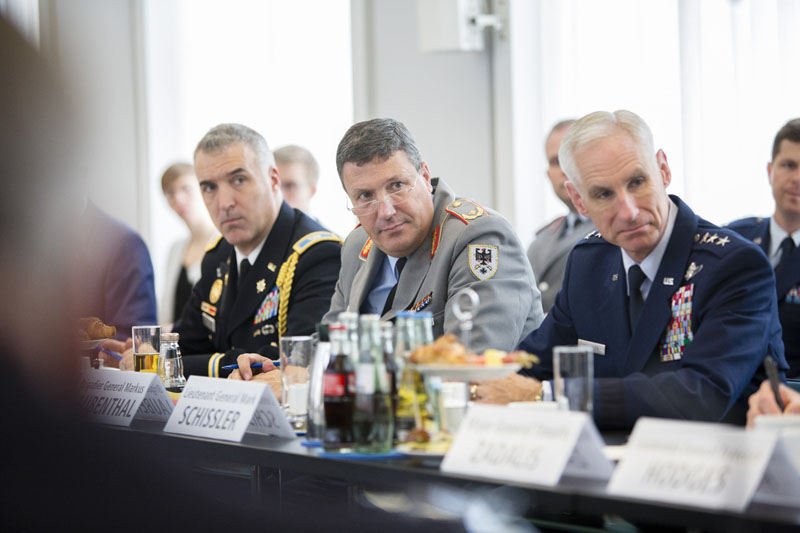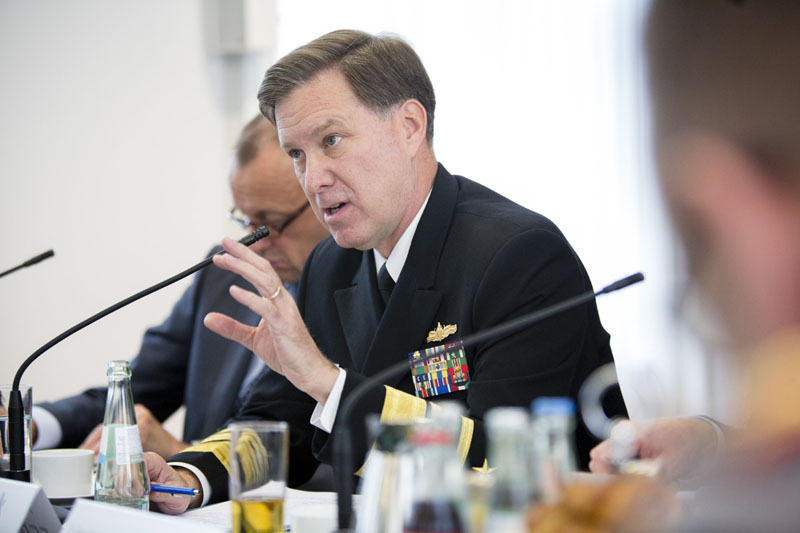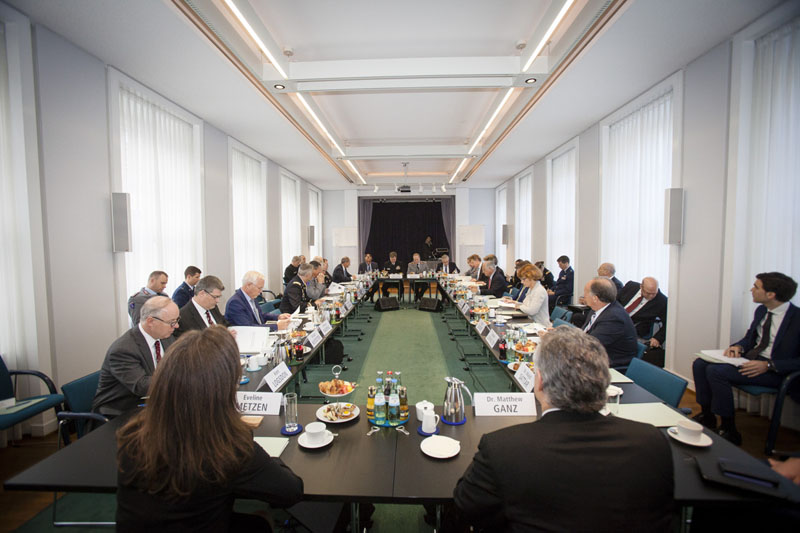Between the Conflict in Ukraine and the Threat of ISIS
The twenty-third expert meeting with the U.S. European Command took place on November 18 in the Magnus-Haus in Berlin. Admiral Mark Ferguson, Commander Allied Joint Force Command Naples, U.S. Naval Forces Europe and U.S. Naval Forces Africa, and Lieutenant General Erhard Bühler, Director Defense Plans & Policy at the German Ministry of Defense, presided over the meeting. Friedrich Merz, Atlantik-Brücke Chairman, gave the opening remarks at the meeting. Since 1990, Atlantik-Brücke has invited high-ranking representatives of the U.S. European Command and the Bundeswehr along with other experts from federal ministries, parliament, think tanks, the media, and business to discuss current security and defense policy issues.
From a German perspective, the integration of the topic started off with a focus on the recent process of drafting a new white paper which outlines the basis for the security and defense policy of the German government for the next ten years. A central element of the strategy is embedding German security and defense strategy into multinational cooperation – especially into NATO. From NATO’s point of view, the defense against hybrid warfare plays an increasingly important role.
The central topics of the debate were two major challenges for NATO: the crisis in Ukraine and the relationship with Russia as well as the imminent threat by the terrorist group “Islamic State” (ISIS), which primarily operates from Syria and Iraq. With its attacks in Paris, ISIS has now also hit Europe. The participants emphasized that a possible cooperation of the Western alliance with Russia against ISIS in Syria does not change the evaluation of Russia’s role in Crimea and eastern Ukraine. Russia’s breech of international law when it annexed Crimea and its violation of Ukraine’s territorial integrity and national sovereignty cannot be tolerated. As a consequence, NATO has increased its bilateral and multilateral exercise maneuvers ever since the summit in Wales. NATO has also initiated more than 40 projects for the collective defense in the eastern regions of the alliance and strengthened its infrastructure, especially to reassure its Baltic partners. NATO aims to further enhance the transparency of its strategy to communicate its actions and the defensive character of the alliance more clearly to the public.
With regards to the fight against ISIS, the need for a political solution was emphasized. Financial sources of the terrorists need to be cut off and political leadership in the Middle East and moderate Islamic clerics need to be strengthened and supported. The possibilities for military support are very limited. Such an approach should includethe European Union and civil society organizations, as well. The cooperation between NATO and the EU in Kosovo was given as an example. In light of the Paris attacks, it was debated which options the Lisbon treaty offers and which consequences may arise: Article 42.7, which may cause a declaration of the EU mutual defense clause, or the solidarity clause of Article 188r, which calls for the support of EU member states hit by a terrorist attack.
Further topics that were discussed included the upcoming NATO summit in Warsaw and NATO enlargement.
Matthias Naß, international correspondent at DIE ZEIT, moderated the discussion.

